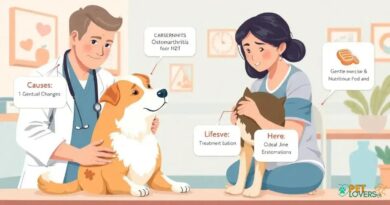What is: Anticoagulant poisoning in dogs
What is Anticoagulant Poisoning in Dogs?
Anticoagulant poisoning in dogs refers to the ingestion of substances that disrupt the normal clotting process in the blood. These substances, often found in rodenticides, can lead to severe health issues and even death if not treated promptly. Understanding how these poisons work and their effects on canine health is crucial for pet owners.
How Do Anticoagulants Work?
Anticoagulants function by inhibiting the synthesis of vitamin K, which is essential for the production of clotting factors in the liver. When a dog consumes anticoagulant poison, the body’s ability to form blood clots is compromised. This can result in uncontrolled bleeding, both internally and externally, posing a significant risk to the dog’s health.
Common Symptoms of Anticoagulant Poisoning
Symptoms of anticoagulant poisoning in dogs can vary but often include lethargy, coughing, difficulty breathing, and unexplained bruising or bleeding. Pet owners should be vigilant for signs such as blood in the urine or stool, pale gums, and swelling in the abdomen. Recognizing these symptoms early can be vital for effective treatment.
Risk Factors for Anticoagulant Poisoning
Certain factors can increase the risk of anticoagulant poisoning in dogs. Dogs that roam freely outdoors are more likely to encounter rodenticides or other toxic substances. Additionally, certain breeds may be more susceptible to the effects of anticoagulants due to their size and health status. Awareness of these risks can help prevent accidental poisonings.
Diagnosis of Anticoagulant Poisoning
Diagnosing anticoagulant poisoning typically involves a thorough examination by a veterinarian, including a review of the dog’s medical history and potential exposure to toxins. Blood tests are often conducted to assess clotting times and to check for the presence of anticoagulant substances. Prompt diagnosis is crucial for effective treatment.
Treatment Options for Affected Dogs
Treatment for anticoagulant poisoning usually involves the administration of vitamin K1, which helps restore the dog’s ability to clot blood. In severe cases, blood transfusions may be necessary to manage significant blood loss. The veterinarian may also recommend supportive care, including intravenous fluids and monitoring of vital signs.
Preventing Anticoagulant Poisoning
Preventing anticoagulant poisoning in dogs involves taking proactive measures to limit their exposure to harmful substances. Pet owners should securely store all rodenticides and other chemicals out of reach of pets. Additionally, keeping dogs on leashes during walks and monitoring their environment can help reduce the risk of accidental ingestion.
What to Do If You Suspect Poisoning
If you suspect that your dog has ingested an anticoagulant poison, it is crucial to seek veterinary care immediately. Do not wait for symptoms to appear, as early intervention can significantly improve the chances of recovery. Providing the veterinarian with information about the suspected poison can aid in the diagnosis and treatment process.
Long-Term Effects of Anticoagulant Poisoning
The long-term effects of anticoagulant poisoning can vary depending on the severity of the exposure and the timeliness of treatment. Some dogs may recover fully, while others may experience ongoing health issues related to their liver function or clotting ability. Regular veterinary check-ups are essential for monitoring the health of dogs who have experienced poisoning.
Conclusion on Anticoagulant Poisoning Awareness
Awareness and education about anticoagulant poisoning in dogs are vital for pet owners. Understanding the risks, symptoms, and treatment options can help ensure the safety and well-being of our canine companions. By taking preventive measures and acting quickly in emergencies, pet owners can protect their dogs from the dangers of anticoagulant poisoning.


